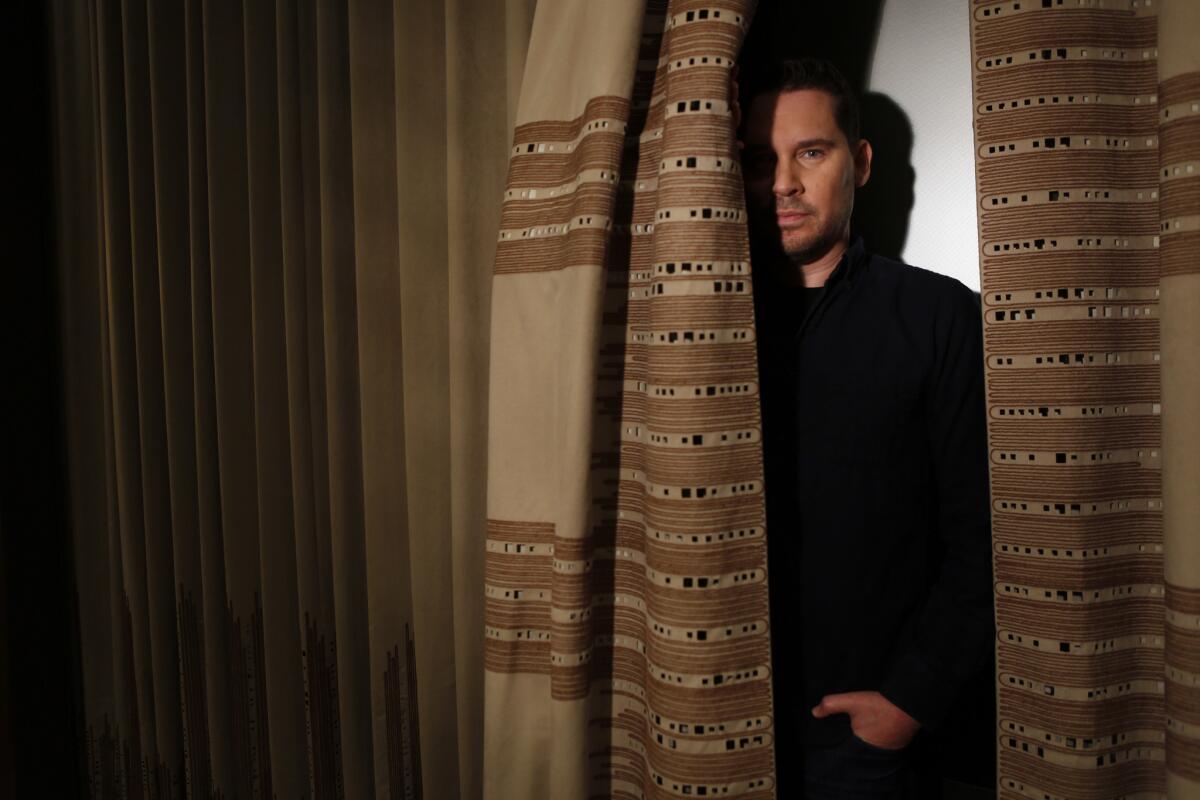‘X-Men’ director Bryan Singer reveals how he built the ‘Apocalypse’

Bryan Singer has directed four films in the X-Men franchise, including the new “X-Men: Apocalypse.”
After “X-Men: Days of Future Past” -- the most sprawling and ambitious movie in the mutant superhero series to that point and the franchise’s top box office earner – director Bryan Singer knew he somehow needed to go even bigger with the next installment. Like fate-of-humanity-in-the-balance big.
In “X-Men: Apocalypse,” which was projected to take in $65 million domestically over its Memorial Day opening weekend and which has pulled down $185.8 million worldwide, an ancient mutant with god-like powers (Oscar Isaac) awakens from a centuries-long slumber in a supervillain-bad mood and sets out to purify (i.e., destroy) what he sees as a fallen world.
On a recent afternoon, Singer -- who has now directed four films in the X-Men franchise -- spoke about his days with the superhero series, both future and past, and where he sees the comic book genre as a whole heading, post-”Deadpool” and “Batman v Superman.”
What was your first thought about where the X-Men franchise needed to go after “Days of Future Past”?
My first thought was the villain needed to be different than any villain we’d ever encountered before. He had to have different qualities than Magneto, for instance. Apocalypse makes no distinction between humans and mutants. He’s fighting no war for either side. He’s fighting a war for dominance over the Earth.
He also views himself not as a mutant but as a god -- and for all intents and purposes he is potentially the God of the Old Testament. He’s a vengeful god who takes claim for being the father of society and faith, and when societies go astray, he destroys them. After being buried for 4,000 years, he awakens to a world that has developed hubris, so he sets about on a mission to start from scratch and build what he considers a cleaner, purer world. That’s a very different villain than I’ve encountered before.
I’m very deeply fascinated by religions and cults, so by taking what I’ve studied from religions and cults and instituting it into the Apocalypse character, I thought, “I can make something that we haven’t seen yet in the ‘X-Men’ franchise” -- and that gives me a reason to return to it. Otherwise, it’s going to get a little old.
We’ve seen various supervillains try to destroy the world before. How do you make that feel fresh and have the stakes feel real?
Our movie is all about our characters. I mean, yes, there is that stuff -- the big stuff, I guess you’d say -- and the audience will get their fair share of that. But ultimately, it’s about the characters.
So as long as I stay true to a good and interesting story that’s character-based, then all of the spectacle -- and this film has more spectacle than any other “X-Men” film has had, probably by many times -- it’s still not the focus. I think that’s the difference between this and just going to see a bunch of fireworks.
When you made the first “X-Men” movie in 2000, did you have any idea that you’d get so deeply involved in the genre?
No ... way! I never even read comics when I was a kid. I was an old “Star Trek” fan. I just knew I wanted to work in the sci-fi fantasy space. I remember meeting Stan Lee when I was starting out at USC and taking a picture with him. I was just a kid wearing my USC T-shirt and I was so excited to meet the guy who created all these characters. But that was it.
But as I watched the animated “X-Men” series and read the comic books, I started to find an identification with the characters. I grew up a Jewish kid in a Catholic neighborhood. I was an only child. I was a nerd in school. I wasn’t a very good student. I was struggling with sexuality issues. So when I suddenly come across this universe that’s all about misfits and outcasts who become superheroes, it intrigued me, and I started to figure a way to tell this story not just to the fan base but to a wider audience.
You started making these movies in a pre-social media world. Last year, when the first image of Apocalypse came out in Entertainment Weekly, the Internet went nuts in a way that wouldn’t have happened 16 years ago. Is it hard not to let all that fan scrutiny get in your head?
It never gets in my head. I just look at it as silliness. Someone puts out a picture that has a pink light on all the characters and people go, “Is Apocalypse going to be pink?” I’m like, “Come on, people.” The mistake was made by us in releasing the photo -- it’s not the magazine’s fault.
The downside of social media is that everything moves so quickly, and it takes the magic away. The good part is it allows me to correct mistakes that start to catch fire. I can control any misunderstanding that gets out of control.
On “Days of Future Past,” they were like, “Oh no, they’re going to do leather costumes again!” I just took a picture and I wrote, “#NoLeatherCostumes,” and overnight, the fans calmed down. That’s the benefit of social media.
When you look at things like the huge success of “Deadpool” and the negative reception to “Batman v Superman,” what’s your sense of where we are in the evolution of the comic-book movie genre?
I think [filmmakers] have to do what they do with all good movies: They have to take their time with them. You can’t just take a bunch of characters and throw them together and stir them up in a soup and hope that it works. They’ll make a lot of money, perhaps, but they won’t necessarily progress the universe or satisfy.
I always refer to these as movies that happen to take place in comic book universes, but ultimately, I treat them with the same seriousness that I do “The Usual Suspects.”
But as far as whether the world can stand more superhero movies? Oh, yes. I mean, the X-Men universe alone is every bit as large as the remaining Marvel universe. It’s enormous. It’s filled with mythology and lore, and it can take you anywhere you want to go through time and space. So, I think there’s a long ways to go.
I just hope not every theater is filled with a … comic book movie because then it doesn’t leave any room for “Steve Jobs” and “The Big Short” and “The Revenant” and other movies that I love.
Where do you see the “X-Men” franchise going from here -- and where do you see yourself fitting into it?
For me, this is not only the finale of the trilogy that started with “X-Men: First Class,” it’s the finale of six movies. But I also call it an “in-betwee-quel” -- not a sequel or a prequel -- because it happens in 1983, before the first “X-Men.” I’ve done something no other franchise has done -- not even “Star Wars,” which is bouncing around in time. I’ve actually altered time so it concludes and also sows the seeds for the characters to find pieces of their destiny where we found them in the first three “X-Men” movies.
I recently met Danny Boyle -- he and I have known of each other for many years but never met. He was prepping “Steve Jobs” at the time and I was doing this and he said, “Are you going to be doing ‘X-Men’ movies forever?” And I didn’t actually say no.
The reality is, even though I’m very desperate to jump to something completely different, I’ve spent so many years in this universe and I love this cast and the characters so much, I just don’t see myself abandoning them forever. Perhaps as a consultant, as a producer, even as a director, I could see myself returning in the future. Just right now, once this one is done, I’d like to do something really different.
Twitter: @joshrottenberg
MORE:
What exactly does the sound and fury of Bryan Singer’s ‘X-Men: Apocalypse’ signify?
Oscar Isaac gets his supervillain on for ‘X-Men: Apocalypse’
With ‘X-Men: Apocalypse’ and ‘Game of Thrones,’ Sophie Turner is coming into her own
So meta: Watch Patrick Stewart watch James McAvoy as he finally shaves his head for ‘X-Men’
More to Read
Only good movies
Get the Indie Focus newsletter, Mark Olsen's weekly guide to the world of cinema.
You may occasionally receive promotional content from the Los Angeles Times.







